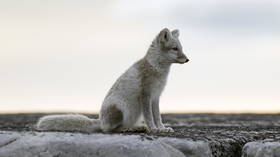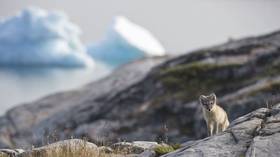Scientists left ‘speechless’ by young Arctic fox’s amazing journey from Norway to Canada

Despite its tender age, an Arctic fox has made headlines, broken records and baffled scientists who tracked its blistering 2,176-mile trek from Norway’s Svalbard islands to Canada in a mere 76 days.
While 15-year-old Cori ‘Coco’ Gauff’s Wimbledon win over Venus Williams was undoubtedly impressive, this one-year-old Arctic fox may have made the most impressive athletic debut of the year, occasionally clocking nearly 100 miles a day during its epic intercontinental journey.
Equipped with a GPS tracking band by the Norwegian Polar Institute, researchers were already impressed when the fox reached Greenland 21 days after its release on March 26, 2018. But the little critter was only getting started, eventually crossing into Canada’s Ellesmere less than two months later. With an astounding average pace of 28.5 miles per day, no fox has ever been recorded traveling that far, that fast before.
“The fox’s journey has left scientists speechless,” reported Greenland’s Sermitsiaq newspaper.
“We couldn’t believe our eyes at first. We thought perhaps it was dead, or had been carried there on a boat, but there were no boats in the area. We were quite thunderstruck,” Eva Fuglei of the Polar Institute told local media in Norway.

Fuglei was working with Arnaud Tarroux from the Norwegian Institute for Nature Research (NINA) to learn more about how the species survives throughout different seasons, particularly during winter when food is scarce. Upon arrival in Canada, the fox will likely skip Tim Hortons and stick to a diet consisting mostly of the plentiful local lemmings.
Unfortunately, the polar institute’s transmitter proved less rugged than the exceptional creature and broke in February… meaning we may never know for sure what it gets up to in Canada.
Also on rt.com Fearless Moscow Zoo cleaner fends off polar bear with broom (VIDEO)While the fox proved to be quite the intrepid traveler, global climate change has reportedly closed off some routes formerly frequented by the species, including the path to Iceland. Scientists are worried that even the trip to Canada might soon no longer be a possibility, as shrinking polar ice caps threaten to isolate Svalbard altogether.
Like this story? Share it with a friend!















